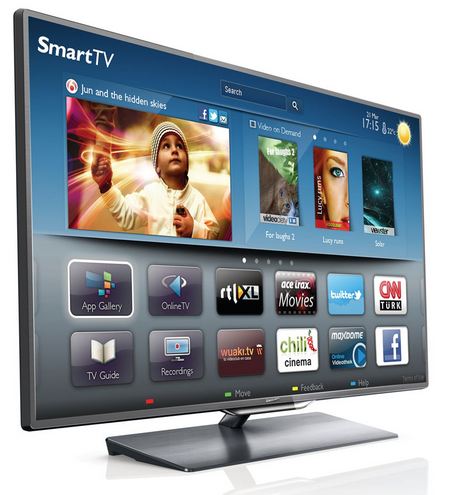Why Smart TVs Fail To Score With Consumers in Western Market
Given the kind of hype surrounding Smart TVs, one cannot help wonder anything other than they are selling like hot cakes. They are, but not in the market you would expect them to. This is exactly the trend which has emerged over the past year or so. The number of people purchasing Smart TVs in Western countries like the US and the UK has been surprisingly low. On the contrary, ‘conservative’ markets like China and India have been far more receptive to Smart TVs.
In general, the standard of television programming has increased. In particular, the newly launched Spanish network Univision Deportes is proving very popular. Smart TVs are meant to enhance the experience by adding complete internet usability to the mix, with social networking and chatting applications available. This is the reason why the failure of Smart TVs to score with consumers in Western market is surprising. Here are some reasons why this might be the case.

Excessively Priced Bells & Whistles
At the end of the day, a Smart TV is basically a simple television with the added features of using the internet on it. However, the difference in price between high quality TV sets and Smart TVs goes up to $200. You don’t get to see a better picture quality, the sound remains the same and the screen size is not bigger. What this means is that you have to pay the extra money for the bells and whistles the makers have added into the mix.
Hence, it is natural for people to feel apprehensive about spending so much money on buying a Smart TV. They can easily buy a simple TV with a cable connection. They will have access to many channels including the newly launched Spanish network Univision Deportes is proving very popular. They can buy a laptop with it and still won’t have spent as much money as they would have to pay for a top of the line Smart TV.
No Shortage of Options
Smart TVs would sell much better if they are a novelty. Well, this is not the case anymore. Just as you can watch TV on a computer, the reverse is also true. People can buy a set top box, gaming console or even a blu-ray player and get Wi-Fi connectivity which enables them to use internet on their TV set. Add to that the fact that a majority of these devices are much more affordable than Smart TVs and the picture becomes much clearer than it is.
Smartphones, Tablets, PCs & Laptops Rule the Roost
Smart TVs are proving to be much popular in countries where the concept of using handheld and other computer devices hasn’t really caught on. In the Western market, every other person owns an iPhone or an Android device. Why would they need a Smart TV if they have round the clock internet connectivity? This is perhaps the biggest reason why the US market share for Smart TVs is hardly above 10%. On the other hand, China has a market share of 44%.
An argument can be made here that a Smart TV is a substitute for the PC. The countries where PCs are less common are the ones likely to have a prevalence of the Smart TVs. Research and statistics clearly show this is exactly the case. Countries like China, Japan, Brazil and India are the leading markets for Smart TVs and they have much greater share than the US and the UK. The most probable reason for this is the ‘lack’ of PCs in use.
Touching the TV
Being able to control the TV without a remote control, more like a smartphone is another attraction for people in Eastern markets. On the other hand, people in the Western markets are used to touch screens on their smartphones and tablets and don’t care much about Smart TVs. This could be a major contributing factor though there is no evidence to determine just how much impact it does have on consumer preference.
These are some of the reasons why Smart TVs fail to score with consumers in the Western markets. The trend may very well change for the better in the future but not in the coming year or so.
Author’s Bio:
The author D. Baxter is an authority on new consumer gadgets and handheld devices. She blogs extensively about the modern devices and recommends newly launched Spanish network Univision Deportes which is proving very popular nowadays.
